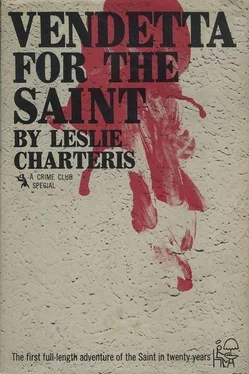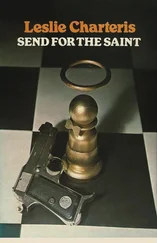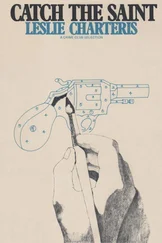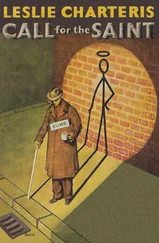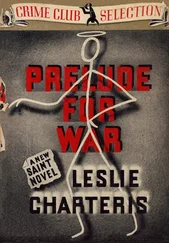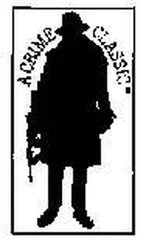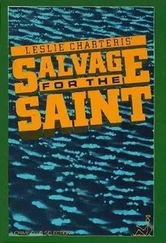The shot scored, more violently even than he had hoped. Gina’s reaction ran the gamut of all the conventional symptoms of shock, from staring eyes and sagging jaw to the cataleptic rigidity in which all her responses were frozen. After such a visible impact, there could be no return to pretense or hauteur.
“So — you know,” she breathed finally.
“I can’t go quite that far,” he said candidly. “I suspect. I can’t prove it — yet. But I think I shall. I need help. And I think you could give it. Now you’ve as good as told me, haven’t you, that you’ve suspected the same thing.”
His blue eyes held her steadily, like magic crystals defying her to try to deceive them; but this time she made no attempt to escape their penetration.
“Yes,” she said. “For a long time. But I was afraid to believe it, because I knew how much I hoped it was true. And that seemed awful, somehow.”
“But if it turned out we were right,” he continued — and the subtle assimilation of their interests into the inclusive “we” was so smooth that she probably never even noticed it, “it’d be rather like the start of a new life for you.”
“Yes, it would.”
“Then what’s your problem? Al is asking you to get involved in what you’re afraid is more dirty business. You’ve got suspicions which you can’t take to the police, because you’re afraid of being wrong, or of what it might mean to your family name. I’m not the police, but I have a corny bee in my bonnet about justice. I think I’m your obvious answer, sent directly from heaven.”
“I think you’re wonderful,” she said, and leaned over and kissed him with impulsive warmth.
Simon Templar recorded a vivid impression that her stretch in a convent had effected no irremedial inhibitions on her Mediterranean instincts.
“La pasta e pronta,” said the too-helpful waiter, with impeccable timing.
The dining room was nothing more than a verandah shaded with cane matting, overlooking the beach and the sea, with the kitchen and other working quarters in the stucco building that backed it up. The substitute for a cellar appeared to be an immense glass-fronted refrigerator from which the wine came mountain-cold, as it should be in such a climate, especially when of the sturdy Sicilian type. The meal itself made a commendable effort to live up to its advance billing, and would have justified interrupting almost anything except what it had actually cut short. But at least it gave the Saint an opportunity to hear the rest of Gina’s confession from a slightly less disturbing distance.
“It’s just... well, a feeling that’s been growing through the years. At first it seemed so fantastic that I tried to laugh it off. But the small things added up to a big thing that I couldn’t put out of my mind. Now I look back, it must have all begun about the time Uncle Alessandro was so sick in Rome. I told you that I only remember that part vaguely, because I was very small. I know he had cancer, and I thought they said it was incurable; but now Donna Maria says I’m wrong, it wasn’t cancer at all, and he got better. Is that possible?”
“It’s not impossible. Doctors have been mistaken. And there have been what you might call spontaneous remissions, which means that the doctors don’t know why the patient was cured, but he was.”
“But not very often?”
“Not very often after the case has been called incurable, that have lasted as long as since you were a little girl, and with the patient looking as hearty as Al did the other day.”
“Then I happened to notice that there weren’t any pictures of Uncle Alessandro in any of the family albums, when he was younger. When I asked Donna Maria, she said that when he was younger he was superstitious about being photographed and would never let himself be taken.”
“Perhaps he had a premonition about when he would have his picture taken with a number under it,” Simon remarked.
“And then a girl whom I used to be taken out with, because her mother was an old friend of Donna Maria, who always finds the nastiest things to say about everyone and yet you usually have to admit they’re true, once said that Uncle Alessandro’s cure must have been more in his mind than his body, if he did so well in business in America, when all he ever did here in Italy was to throw away most of the family fortune.”
“Is that what he did?”
“Oh, yes. Even Lo Zio, when it wasn’t so hard for him to talk, told me how foolish he was and some of the crazy schemes he threw money away on. And I couldn’t believe he had become such a different man.”
Simon nodded.
“Unless he is a different man.”
“But how could he be? Unless Lo Zio—”
“Who, let’s face it, isn’t so very bright these days—”
“And Donna Maria—”
“Yes, she would have to be in on it.” The Saint held her eyes remorselessly. “And don’t try to tell me you can’t possibly imagine such a dear sweet old lady being involved in anything dishonest.”
She made no attempt to evade the challenge; it was as if she had grown up, in one way, very suddenly. She only asked: “But why?”
“When we know that,” he said, “we’ll have a lot of answers.”
After a while she said: “You want me to trust you, but you still haven’t told me much about yourself, only the things you’re not. If you aren’t a detective, how did you get so interested in Uncle Alessandro?”
His hesitation was only momentary, more to marshal his recollections than to make up his mind whether or not to share them with her. After all, even if she was an extraordinarily unsuspected Delilah, capable of far more deviousness and duplicity than one could easily credit her, and this whole last performance was only another trick to gain his confidence, there was very little he could tell her that would be news to Al Destamio, or that would help the Mafia to frustrate his investigations.
Therefore he told her his whole story, from the accidental meeting with the late James Euston to the plastic bomb which he had disarmed the night before, omitting only his private luncheon conversation with Marco Ponti and his disposal of the plastic with the fingerprints on it, since even if she had come over whole-heartedly to his side those items of information might be tricked or forced out of her. At the end of the recital she was big-eyed and open-mouthed again.
“I can hardly believe it — a bomb, and right outside our house, while we were having dinner!”
“A very sensible time to do it. You should try planting a bomb in a car without being noticed, when somebody’s sitting in it, driving at sixty miles an hour.”
All this talk was not quite as consecutive as it reads, having been spread over several courses, with the necessary breaks for tasting, sipping, chewing, absorbing, and cogitating, and interruptions by the waiter for serving and changing plates and appealing for approbation.
It was later still, after another of those pauses divided between gastronomic appreciation and the separate pursuit of their own thoughts, that Gina said: “I did think of a way once to settle whether Uncle Alessandro really is the same man as my uncle, but of course I never had the nerve to do it.”
“If that’s all it takes, it’s practically done. People are always complaining that I’ve got too much nerve. Let me offer you some of my surplus. What do we do with it?”
“It’s so simple, actually. If my uncle is dead, and this man is an imposter, the real uncle will be buried in the family vault. We just have to open it and look.”
The Saint frowned.
“Does that follow automatically? Wouldn’t they be more likely to have buried him somewhere else, under another name?”
Читать дальше
